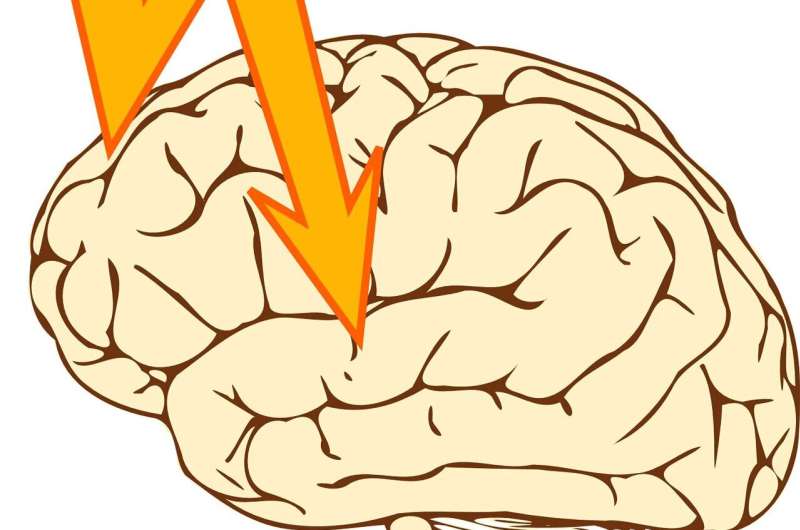Researchers reveal a possible new pathway for treating epileptic seizures in patients with autism

Autism affects about 2% of children in the United States, and about 30% of these children have seizures. Recent large-scale genetic studies have revealed that genetic variants in a sodium channel, called voltage-gated sodium channel Nav1.2, are a leading cause of autism. Overactive sodium channels in the neuron cause seizures. Doctors often treat seizures by giving the patient a medication meant to close the sodium channels, reducing the flow of sodium through axons. For many patients, such treatment works, but in some cases—up to 20 or 30%—the treatment doesn't work. These children have "loss-of-function" variants in Nav1.2, which is expected to reduce the sodium channel activity as "anti-seizures." Thus, how the deficiency in sodium channel Nav1.2 leads to seizures is a major mystery in the field that puzzles physicians and scientists.
Yang Yang, an assistant professor of medicinal chemistry and molecular pharmacology at Purdue University, and his team, including first-author of the paper post-doctoral researcher Jingliang Zhang, tackled the issue. They discovered that in Nav1.2 deficient neurons, the expressions of many potassium channels are surprisingly reduced. The Nav1.2 deficiency itself doesn't cause seizures; the issue arises when the potassium channels over-compensate for the sodium channels' deficiency by shutting down too many potassium channels, making the neuron hyperexcitable, which causes seizures. In such cases, treating the sodium channel clearly does not work. Yang and his team suggest that developing medicines to open the potassium channels would help control seizures in these patients. Notably, researchers from the University of California, San Francisco, led by Kevin Bender's research group, made a similar observation independently. Yang and Bender's papers were published back-to-back in the same issue of Cell Reports.
"We're looking at genetic makeup, so doctors can prescribe a drug and gene therapy based on genes identified—personalized medicines," Yang said. "Our research points toward a direction for future research, maybe future treatments. We are peacetime warriors, fighting humanity's biggest enemy: disease. There are kids dying because of these conditions. Our goal is to help them, to help their parents and their families. This kind of basic research is a vital part of finding new drugs."
Yang is an expert in pharmacogenetics, especially the genetics of chronic pain, epilepsy and autism.
More information: Jingliang Zhang et al, Severe deficiency of the voltage-gated sodium channel NaV1.2 elevates neuronal excitability in adult mice, Cell Reports (2021). DOI: 10.1016/j.celrep.2021.109495

















